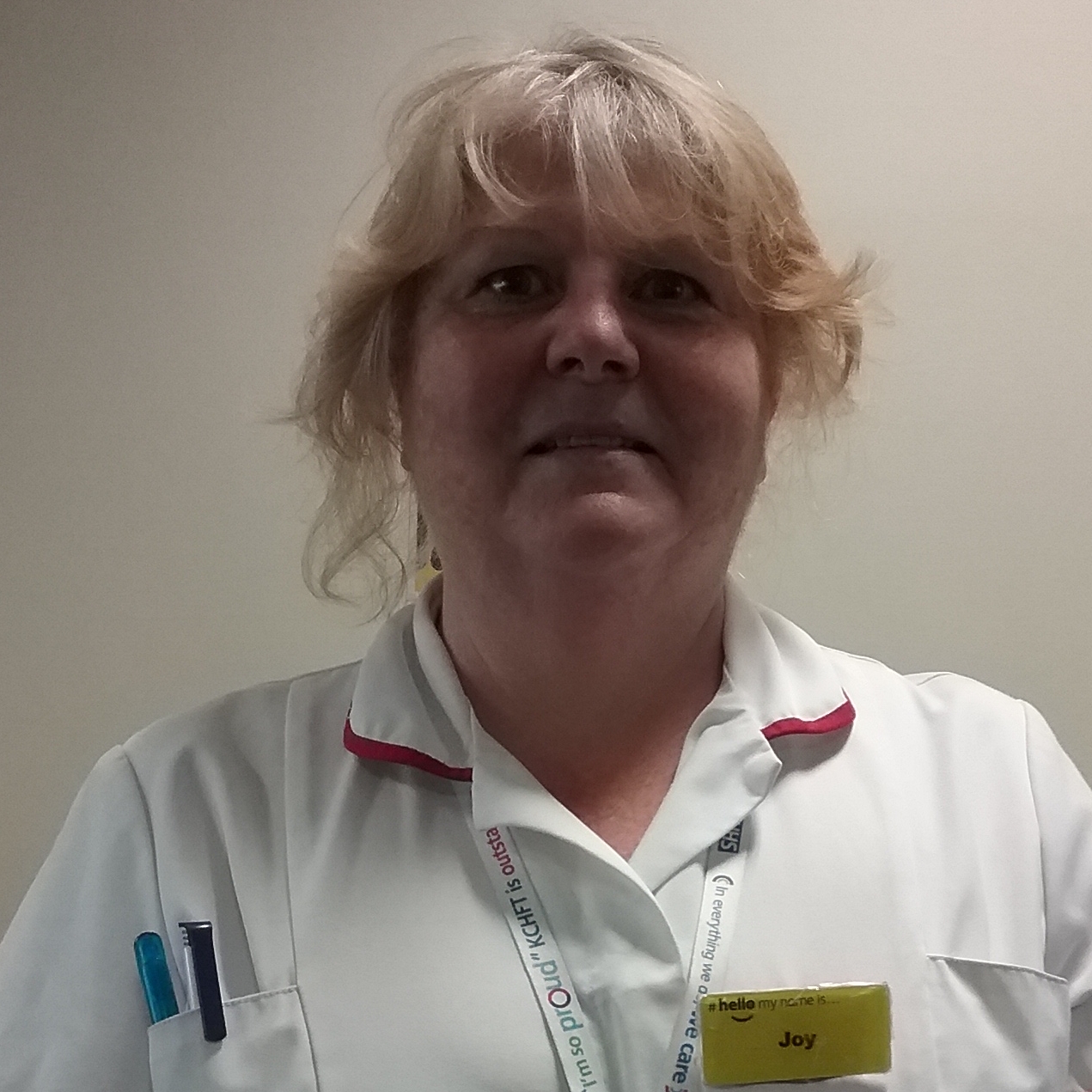When a system for logging blood test referrals wasn’t working well, phlebotomist Joy Giles launched a project to make improvements for both patients and colleagues.
The system meant colleagues within the team were entering referrals and patient details in four different ways. It meant a lot of work for the Whitstable Community Nursing Team – as well as duplication – and with colleagues struggling to keep up, some blood tests were missed or carried out late.
Phlebotomist Joy Giles sat down with her manager, to see if changes could be made and after brainstorming ideas, she launched a quality improvement (QI) project.
It was aimed at creating a manageable caseload, to make sure patients were seen on time and to reduce missed visits from an average of three a day to none.
It was carried out between March and October 2019.
Joy said: “We had a paper system and found we had forms all over the place. The system worked ok Monday to Friday, but not so well at the weekend. If I came back from time off there was a lot to catch up on.
“We have a policy that routine blood tests must be done within five days. An urgent test must be carried out on the same day, or if a referral is made after 1pm, then the following day. These targets were not always being met.
“We went paperless at the end of the summer, 2018, but that didn’t help, as information was still being logged in four different ways and things were being lost or missed. We had patients complain.”
Due to the way referrals were filed, sometimes more than one clinician would visit a patient to carry out a blood test.
Joy, working closely with her manager and other members of the team, decided the best way forward would be to enter every referral on the trust’s central information system (CIS). This would immediately flag if a visit was needed and if a target was missed. It also made it easier to allocate a clinician to a referral, especially if they were already in the area – and to prevent doubling up.
Joy said: “It improved things for patients and made everything much more efficient. It has worked so well that community nursing teams in Faversham and Herne Bay are now using the new system too.
“When I come back from time off now, I know that every patient will be on the system and every referral will be there. A referral will be immediately acted on and patient complaints – we don’t have any.”
In addition, another phlebotomist has been employed to cover the area, as well as Joy, to help with the workload over the wide patch.
Joy was inspired to try QI by her manager, who was carrying out a QI project aimed at increasing joy in work, within the community nursing team. She went on to do the trust’s one day QI course called fundamentals.
She said: “During the COVID-19 pandemic we had a midwife temporarily moved to our service to help us and straight away she was able to see where everything was, as the process is now much simpler. It still needs some tweaks, to be further improved and we will work on these.
“Before I was going on visits, trying to work out the best route, doubling back on myself, chasing forms and taking phone calls about blood tests which were urgent. The new system has reduced stress within the team as it works so much better.”
One QI tool Joy used was a driver diagram, to help set out what she needed to do to bring about change and improvement. Her project is logged on Life QI, a portal where all Kent Community Health NHS Foundation Trust QI projects are stored.


